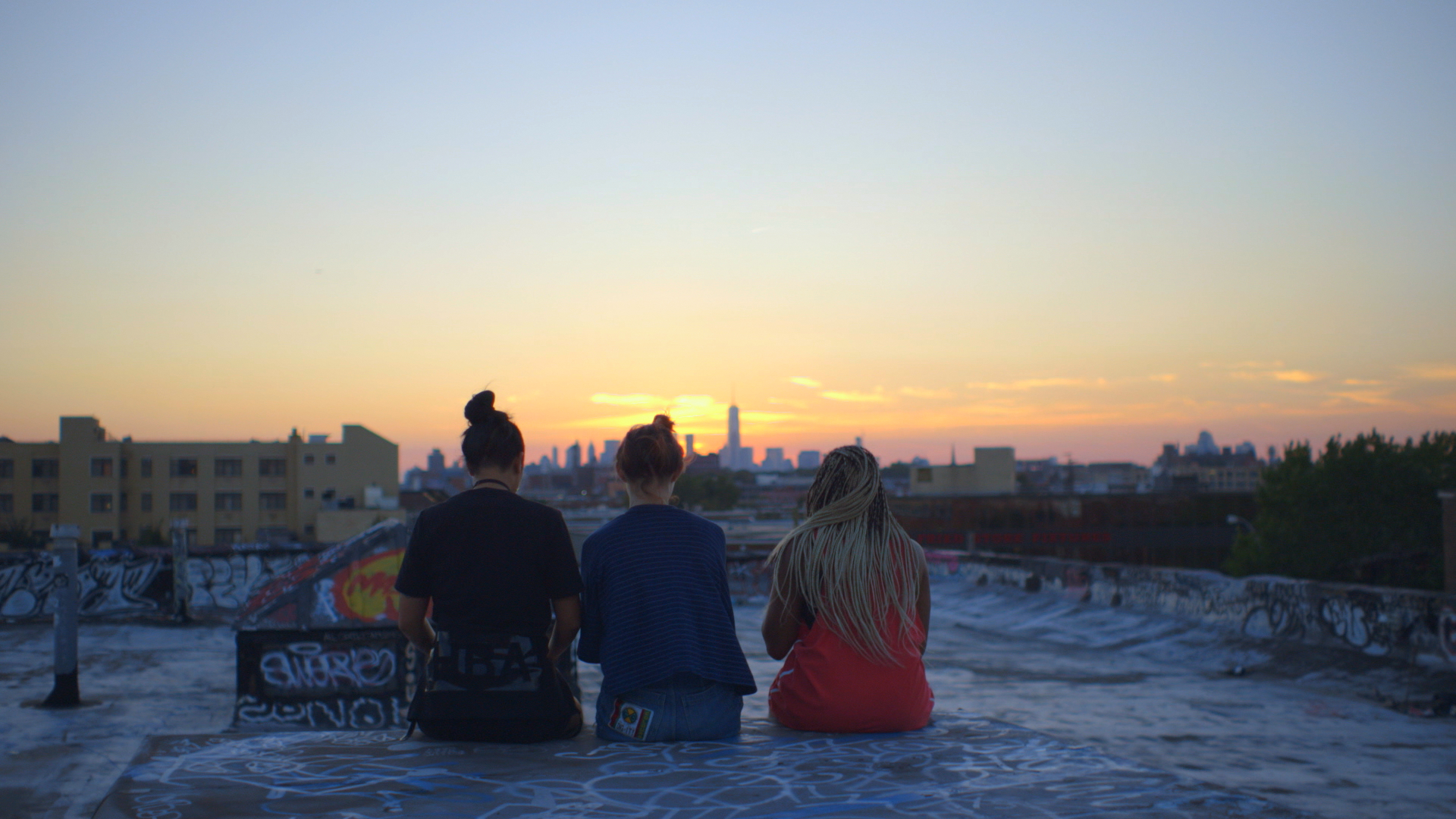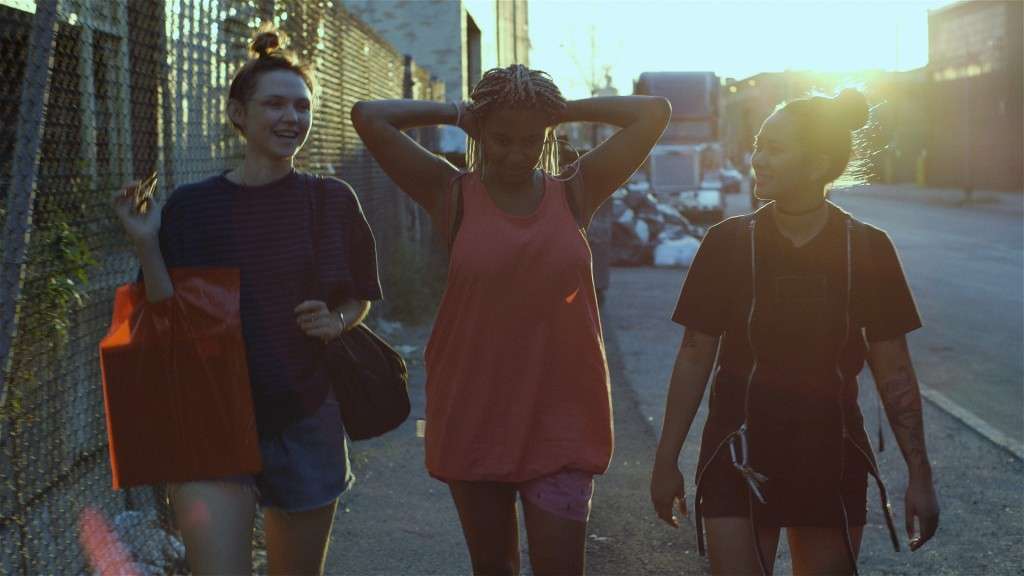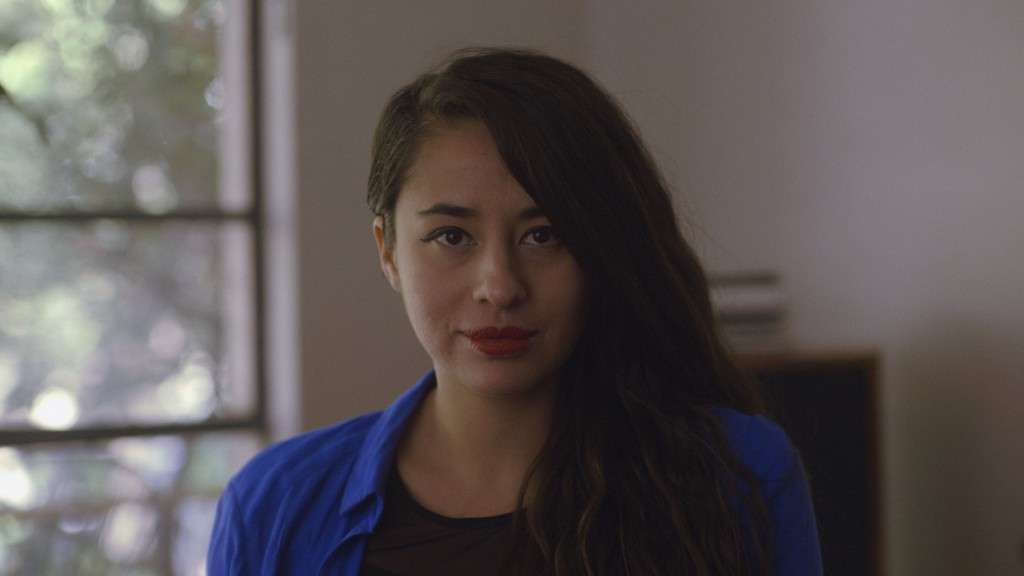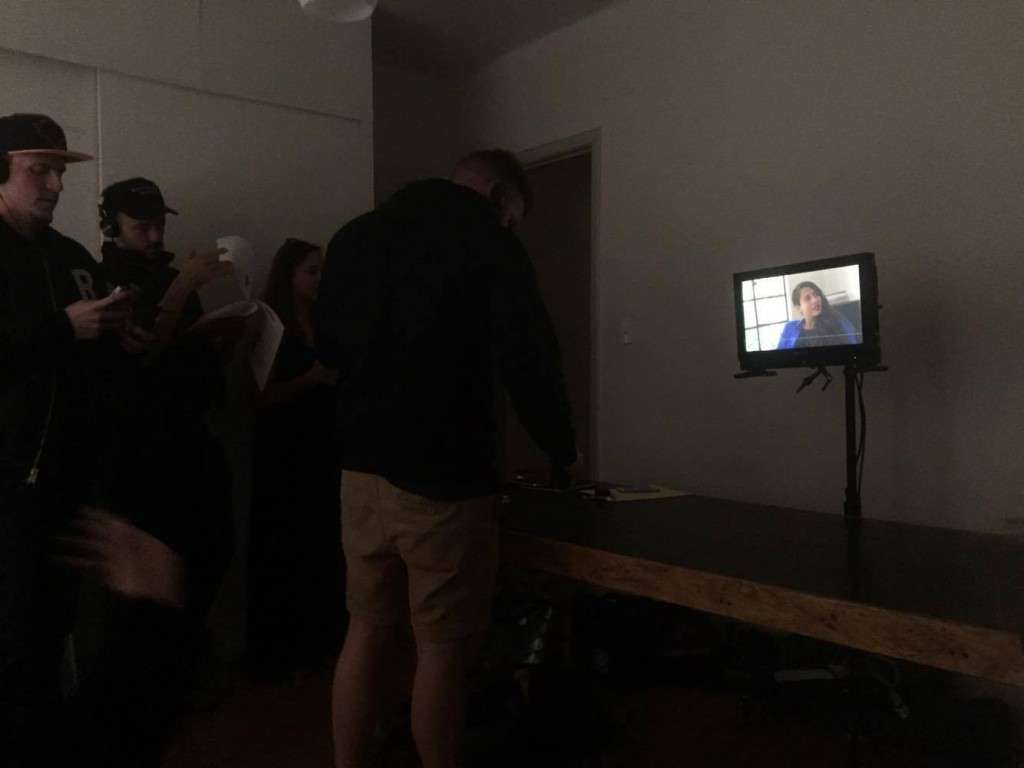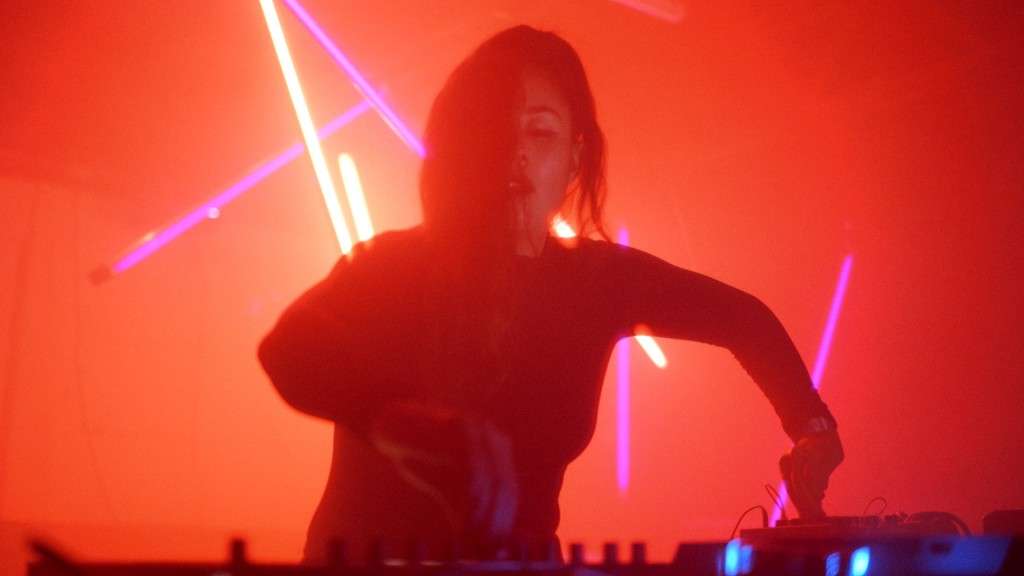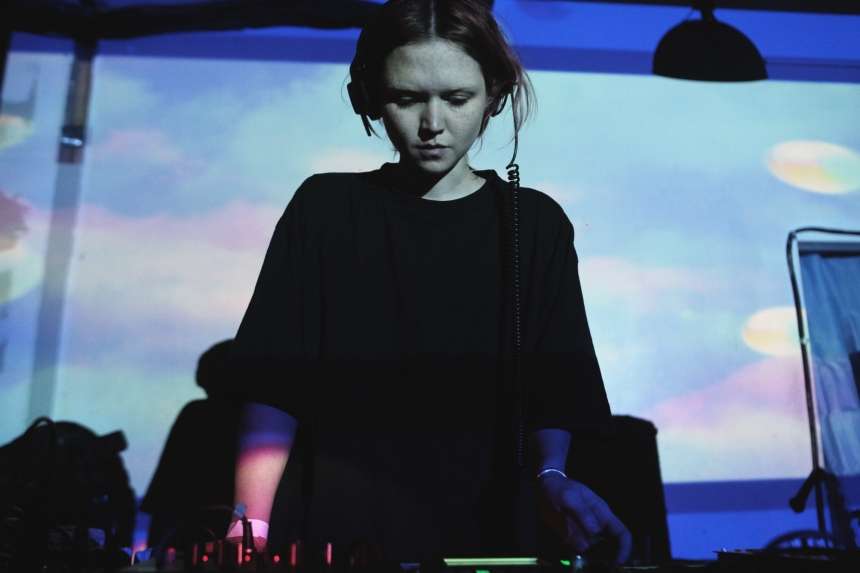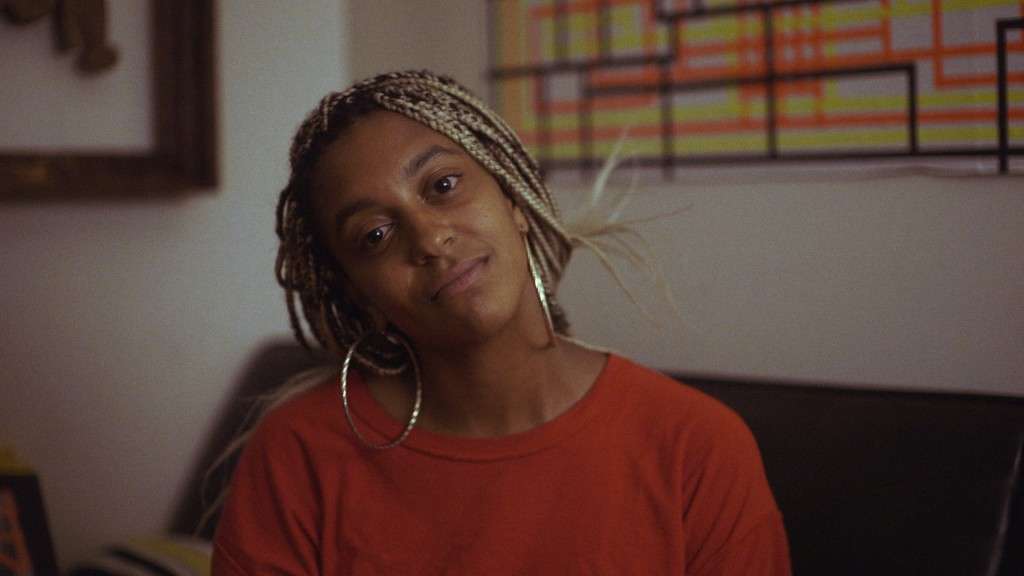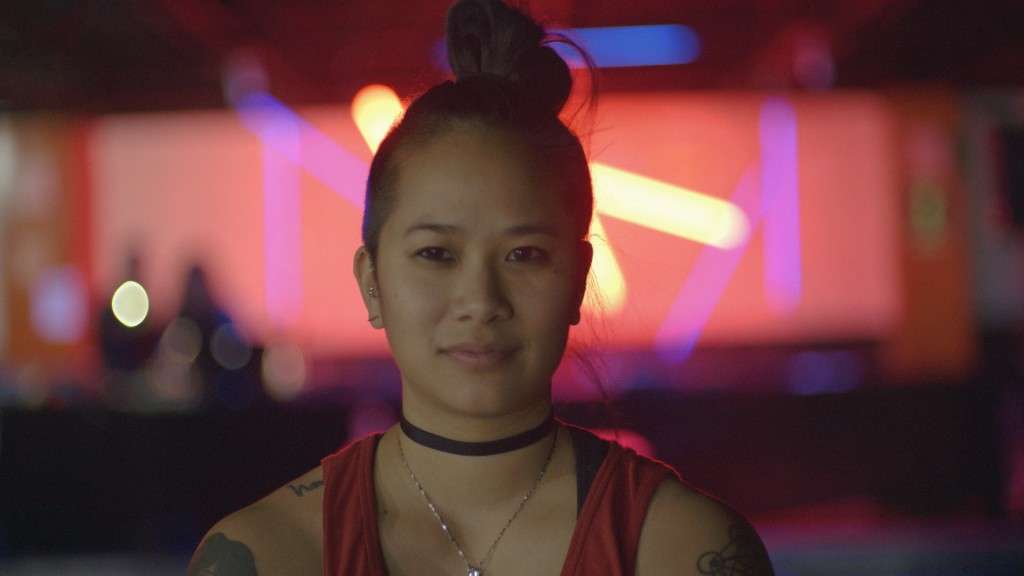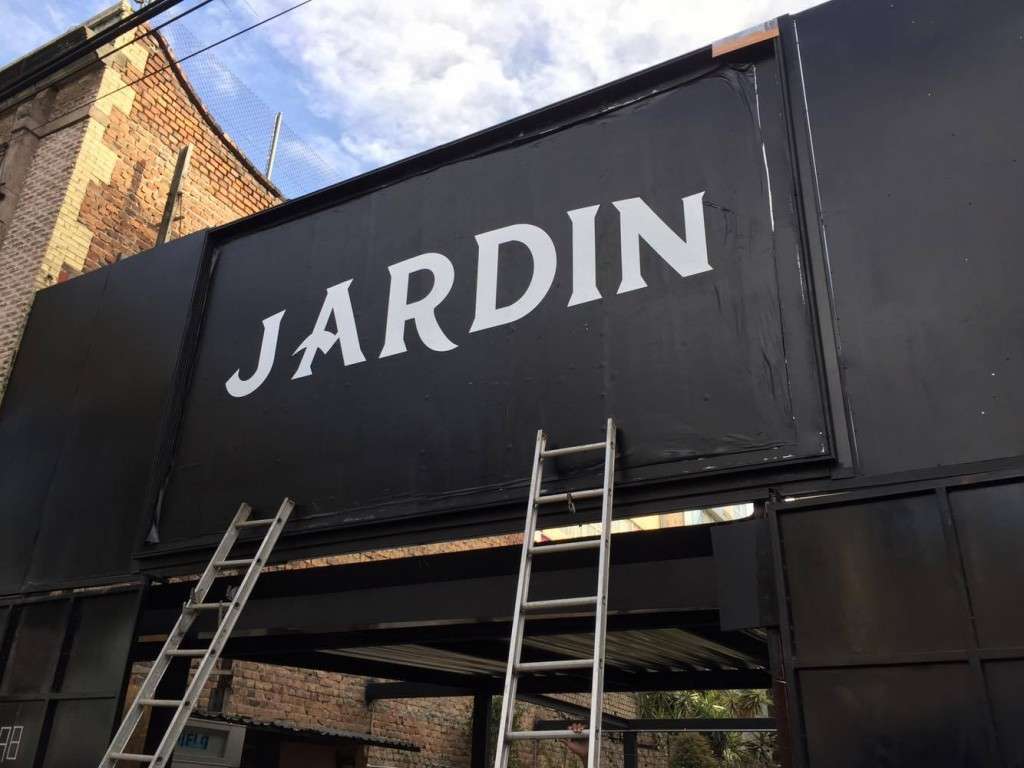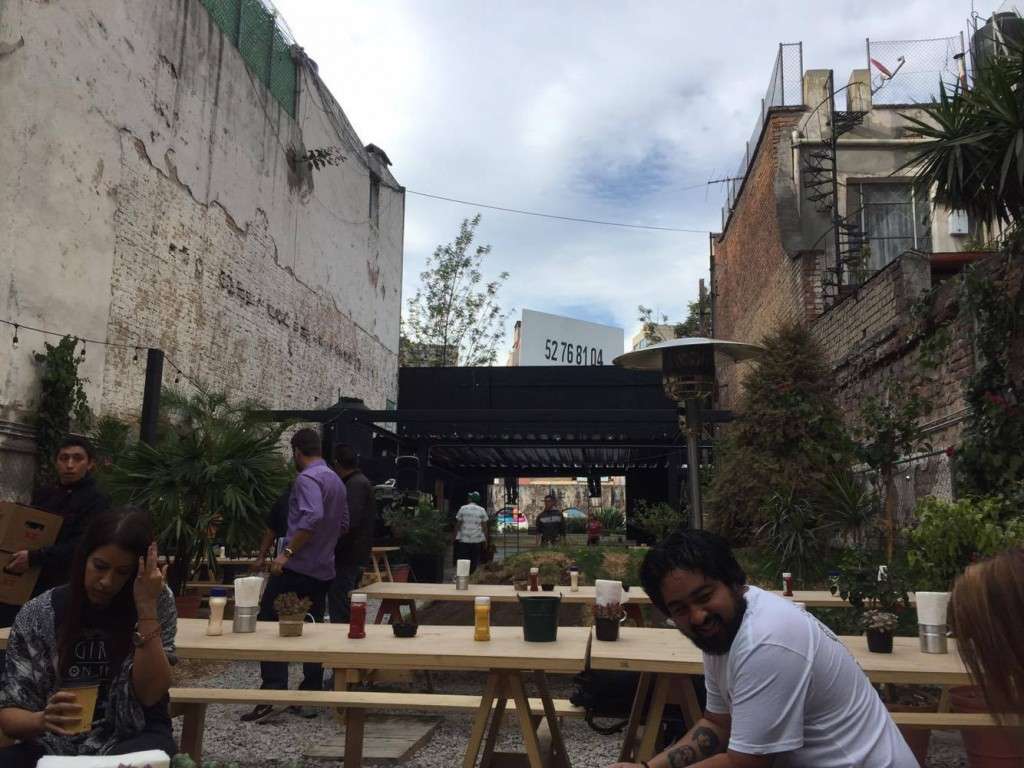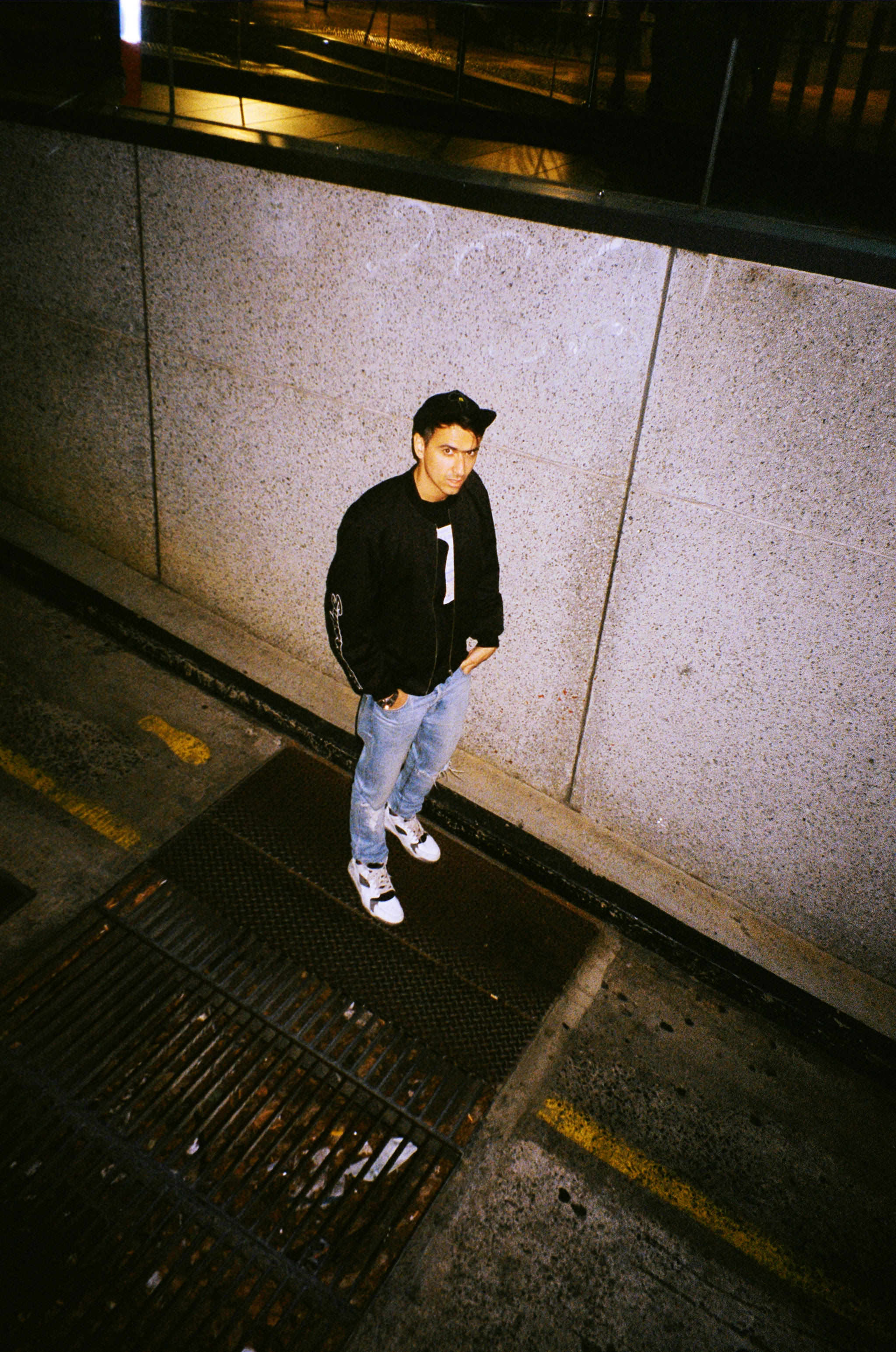The first time I stepped foot on Mexican soil was with my grandma in 2006. It was a brief stop – only a few hours as I remember it – somewhere on the country’s western coast while our Carnival cruise ship docked and refueled for our return voyage to southern California. We meandered through a plaza or two, tasted tacos from a street cart, listened to mariachi and tried our best to communicate with vendors using only “sí,” “no” (with an accent) and “qué.” We left as quickly as we arrived, having absorbed a tourist-filtered blink of the region’s food and language. It was pleasant, non-committal and, as I would find out an entire decade later, a mere surface scratch of Mexico’s indescribable, cultural depth and vibrant, ever-evolving musical identity.
This is why my plane’s slow descent below the clouds into the Valle de México this January was so staggering and visceral. Home to Mexico City, the country’s centrally situated capital and thriving hub of nearly nine million inhabitants, the valley’s surface was blanketed with tightly packed neighborhoods and structures that stretched past the horizon in every direction. Miniature mountain ranges and vacant plateaus pierced upwards from the crowded base, serving as resilient and striking landmarks; things to look skyward for in the otherwise endlessly flat expanse of civilization.
As we finally touched down, I was struck with the realization that I knew nothing of this place, despite its closeness to my home state and consistent presence on the news and within my daily goings on. Each moment I would spend here would be an introduction to something new, I thought; an opportunity to breath and involve myself in a flourishing location and culture untainted by my own preconception or comfort. With a now, almost fluent grasp of the language and years of time spent observing my own country’s electronic music community, I was ready to dive headfirst into a brand new scene and experience what a few nights in the bubbling, Mexican DJing circuit had to offer.
This reason for this voyage, however, rested with Smirnoff Sound Collective, the company’s dedicated platform for showcasing noteworthy pursuits made in the global, electronic music realm. As part of their ongoing mission to promote the inclusivity within the dance music community and celebrate its inherent diversity and depth, the Sound Collective had spent the previous few months tracking and documenting the progress of New York-based DJ collective and booking agency Discwoman as they traversed the continent, spreading their sound and influence across communities large and small. In an effort to highlight the group’s direct focus toward fostering and commemorating female-identified talent inside the electronic music industry, Smirnoff had embarked on a lengthy filming process that would culminate in a short documentary dedicated to Discwoman’s journey. The film series, Tribes, was to end in Mexico City, where the team would take over the area for a week of workshops, appearances, shows and events. As the Collective’s final shooting location, the city stood as an opportunity for Discwoman to arrange the local techno circuit’s most noteworthy rising talent for a musical experience unlike anything seen in the region before. And lucky for me, I had been given a front row seat.
Discwoman first came into being in 2014, when its three creators put on a two-day festival at Bossa Nova Civic Club in New York. Since then, Frankie Hutchinson, Emma Burgess-Olsen – or UMFANG, as she’s known behind the decks – and event organizer Christine Tran have curated performances across the United States, Canada and Latin America, working with over 150 female-identified DJs and artists. No matter where they touch down, they said, their mission continues to be the inclusion of the areas’ diverse, local talent. Commended across mainstream news outlets and the seedy, underground techno scene alike, the group’s effect on the music community has gone anything but unnoticed.
As relative virgin territory for female electronic producers, Mexico City came as the ideal location for Discwoman to host their final Tribes event series. Inherent, cultural factors persist in the region, I would later find out, that make women’s dreams of pursuing a life in music very difficult to attain. According to one resident, the country’s mentality as it pertains to gender is “15 years in the past” when compared to areas like Europe or the United States. With the arrival of Discwoman and their creed of inclusivity and boundless expression, however, Mexico City would have no choice but to experience a taste of the future, relating to both the ability and fair representation of women artists and the actual music being played.
“Everyday, as a woman, you need to be a warrior.” -Demian Licht
We began our adventure the following afternoon at local DJ and Latin America’s only certified female Ableton trainer Demian Licht‘s apartment. Dense tree canopies shielded her building from the heat as a small and friendly café bustled peacefully downstairs, the sound from the street leaking into her third floor residence. New Zealander filmmaker Stacey Lee – an award-winning creator for such clients as VICE, Spotify and Red Bull Music Academy – and her crew had cordoned off several rooms for the Tribes interview that would shortly take place. As a highly involved member of the Mexican DJing circuit and contributor to the Discwoman live event to take place later in the evening, Licht’s perspective on the issues surrounding the local scene came as a valuable asset toward more wholly understanding the necessity for the collective’s presence there. I was stationed in the apartment’s rear bedroom, where I sat motionless watching the discussion on a monitor the crew had set up for us. The next hour quickly became a passionate discussion about Licht’s history as a female music producer in Latin America, and her reasons for deciding to carry the torch for those like her in an environment that discourages the pursuit all together.
At 21-years-old, Licht founded an electronic music center in the basement of her house at the time. Grounding her lessons in the concepts of freedom of expression and musical experimentation, she taught nearly 100 students about the ins and outs of production during a seven year period. With the support of her parents, she was able to travel the world, accumulating a multilingual and multicultural identity that she said allowed her to transcend the restrictions of ascribing to just one home nation. Despite her accent leaking through during the interview, her firm knowledge of the English language was only made more impressive by the fact that it was just one of four others that she had learned during her travels abroad. “I see the world as a human being,” she said, describing her voyages as opportunities to add experiences into her blood and skin, rather than simply enjoy them as a tourist.
Licht said that she had first heard of the Discwoman collective while in Berlin. At the time of the interview, she said, she hadn’t even met its founders in person. But as someone with ideals so closely aligned with those of the collective, Licht believed their city takeover to be an essential beginning toward birthing a transgressive and modern shift in the way the country views women in music.
“The event tonight is going to detonate the female presence. Tonight is going to give a new page to the electronic music scene’s history in Mexico.”
Licht’s own brand of music lies in the techno realm; a minimal yet abrasive variant of the more commonly played styles. “I like complexity,” she said, describing her utilization of modular, FM and granular synthesis in her productions. The software required to make her strand of music, however, is far too expensive for the Latin American market, she said. Because of the hefty price of products like Ableton Live, combined with the lack of sufficient empowerment for women in the community, Licht said female producers in the country are currently in more need of inspiration than ever. This is why she recently founded an organization, Motus, aimed directly at combatting the factors that hinder those affected. By teaching them about languages and giving them the knowledge and tools to be able to approach the world both societally and musically, she said, she hopes to foster the kind of confidence required for women in her area to break the mold.
“Electronic music was my way to evolve as a woman.”
By evening, it was time for Discwoman’s main event at the Salón Paraiso near the center of the city. The unassuming venue was sandwiched between a grocery mart and food stands on Calle José María Izazaga, its doorway occupying a mere shoulder-width gap between the surrounding buildings. Inside, however, the space expanded outwards into a wide room, nearly pitch black save the sweeping planes of laser and strobe lights emanating from behind the decks. A central, checkered dance floor was separated from the main floor by a small step, allowing for some members of the eventual crowd to corral themselves away from the tightly packed group up front. Walls of ceiling-high speakers stood on either side of the makeshift booth, while a small black box sputtered out fog, creating an intense and cloudy atmosphere before the doors were opened.
The night’s line up featured a powerful group of locals and visitors alike, each bonded by their commitment to preserving and embodying Discwoman’s inclusive ideals. Headlined by Chicago’s own The Black Madonna, the event also featured Discwoman founder UMFANG, New York-based Volvox, Demian Licht, Mexico’s Nina Sonik, and duo Zombies in Miami. From start to finish, the vibe cultivated by the roster of DJs never strayed from meaningful and much-needed intensity. Live vocals, drum pads and traditional mixing were fluidly woven into most of the sets during the evening, bringing unique personality and genuineness to each performer as they captivated the quickly growing crowd. Guests arrived from all corners of the hemisphere, some like attendee Diego Nuñez traveling hours across the country to witness the one of a kind event.
After her 10 p.m. set finished, I spoke to Nina Sonik about her musical history and involvement with the Discwoman collective. She had come up on such artists as Nosaj Thing, Tokimonsta and Portishead, she said, and eventually began producing her own strand of future beats and downtempo creations. While learning to DJ, she worked with Demian Licht and began to edge further towards more techno-oriented styles. Before Discwoman arrived, she said, women like her had very few places to play this specific kind of music. “Mexicans have talent,” she said, but the inherent “machismo” of her society has dampened her entire gender’s ability to contribute to its musical evolution. “I want to be an inspiration for women,” she said, “and not have to prove myself two to three times more than men” just to play the same venues. She said she was glad that Discwoman had opened up a chance for her and her brethren to do just that.
“Techno is a statement for the future.” -Demian Licht
UMFANG’s midnight set saw the crowd’s energy at its peak, as her sharp and grimy melodies aligned with the venue’s piercing lights and visuals. Rather than play a linear string of independent tracks, UMFANG was able to craft an immersive, sonic experience during her performance. Percussion and melodies overlapped and replaced one another seamlessly while the pounding kick drums maintained a palpable level of energy throughout the evening. At 1 a.m., The Black Madonna emerged confidently behind the decks, closing out the event with an unmatched stage presence and comfort that could’ve only been achieved through her years of residencies and other performances. I stumbled out of the Salón with weak legs and a newfound understanding and respect for both the genre itself and the local community that had so expertly crafted an engaging experience for those in attendance.
My following morning was spent inside one of the city’s affluent, artisan marketplaces, where independent taco stands, pressed juice booths and vendors sold their most delicious cuisine to entrants seated on bar stools in between the narrow aisles. Without entirely knowing what I was ordering, I was handed enormous slices of lamb, chocolate dipped churros and even a baggie of dried grasshoppers.
We packed up and headed next to meet with the Discwoman founders themselves in anticipation of the daytime garden party to follow later in the afternoon. As we reclined next to a towering, onyx sculpture-turned-fountain, I asked the three members about their intentions for the future of their movement and the impacts that they’d already made on the community at large.
When Bree-Olsen (UMFANG) was first starting out, she said, the social issues that now characterize her collective’s efforts were not something that primarily guided her advancement.
“My main agenda was just wanting to make music, and then once I started talking about it and having a dialogue with more women, I realized that a lot of the obstacles in my own path were having to do with fear and lack of confidence and not knowing which questions to ask. Once I had more female peers that were also interested in that, it made me feel so much more comfortable doing it.” – UMFANG
Now, after more than a year under the Discwoman banner, the three are starting to witness the real world results of their dedication.
“I’ve been able to see how actually doing what I want to do, which is make music and learn new ways to make music, it just makes me feel so good. And then I can encourage more people to have that same experience. . . We just have this credibility that we completely didn’t have before. We just built it out of our vision. Within months of planning these events and pulling them off and having them be excellent, it’s like ‘well what do I have to doubt about you anymore? You guys deliver every time.'”
When asked if any responsibility falls on the listeners and attendees to help cultivate the inclusive atmosphere that Discwoman strives for, Hutchinson said that the performers and organizers can only do so much. The crowds, she said, play a substantial role in fostering a safe space for everyone involved.
“Every person has some power. The talent does bring in a specific audience and then that audience does have expectations for how they want to experience the music and the space, and the environment has to reflect that. We want people to feel safe.” – Frankie Hutchinson
Throughout their journey, Tran said, the friendship and mutual respect that the three share with each other has continued to act as the glue holding the entire project together. Each of the founders come from separate backgrounds and are able to introduce and represent specific attributes that, when combined, form the core identity of the collective.
“We push each other so much, and we all come from different places and we all grow together.” – Christine Tran
Without a moment to lose, we said goodbye to Discwoman and made our way to their daytime party. El Jardín, a vacant lot nestled between several-story residence buildings had been transformed into a lush picnic area. Small, grass-topped hills and gravel trails wove between tables that rested underneath the raised DJ platform. A grill sent plumes of smoke into the air above the alley, as cooks prepared meats and vegetables for the attendees to enjoy while they relaxed beneath the strings of hanging lights and slowly darkening Mexican sky.
A completely fresh line up of local artists took to the stage throughout the afternoon, as the techno foundations from the previous night were swapped in and out for variants of reggaeton, hip hop and more. The space quickly became a sort of kickback for the Discwoman contributors and their supporters to bask in the peaceful beauty of Mexico City’s early evening. As it progressed, those of us in attendance congregated around the DJ booth to complete the image of a proper performance. The feeling surrounding El Jardín was one of serenity and inclusion that lasted well into the night.
Something that was constantly stressed by the artists and organizers I spoke with during my experience was the absolute importance of representation and fair treatment of female-identified industry members in the community, both for the sake of the actual members and the maturity of the art form itself. The goals of collectives like Discwoman, first and foremost, manifest themselves in concrete, tangible objectives for women on the ground: equal pay for their work, a conscious effort to have them represented on line ups, and a paradigm change in the electronic music industry narrative that strays away from the business being one dominated by white males. It is with these prospects that the women of Discwoman fuel themselves to continue striving forward. By establishing themselves and their movement in places normally untouched by the greater portion of the scene, they hope to continue putting the local, female-identified talent on their shoulders and inspiring a new generation to explore previously forbidden musical avenues and opportunities.
With the support of Smirnoff Sound Collective, the underground DJs of Mexico City have been given a platform to be seen and heard. Tribes: Discwoman, the first episode of their series, now stands as a testament to International Women’s Day and to the members of the music community that seek to uplift and motivate those who continue to fight for inclusivity.
As we celebrate the holiday, watch the documentary below to witness the women behind the movement that have nurtured the ideals that will carry those in places like Mexico City into a new age of involvement and equality.
https://www.youtube.com/watch?v=xtqoHTpedfY&feature=youtu.be
